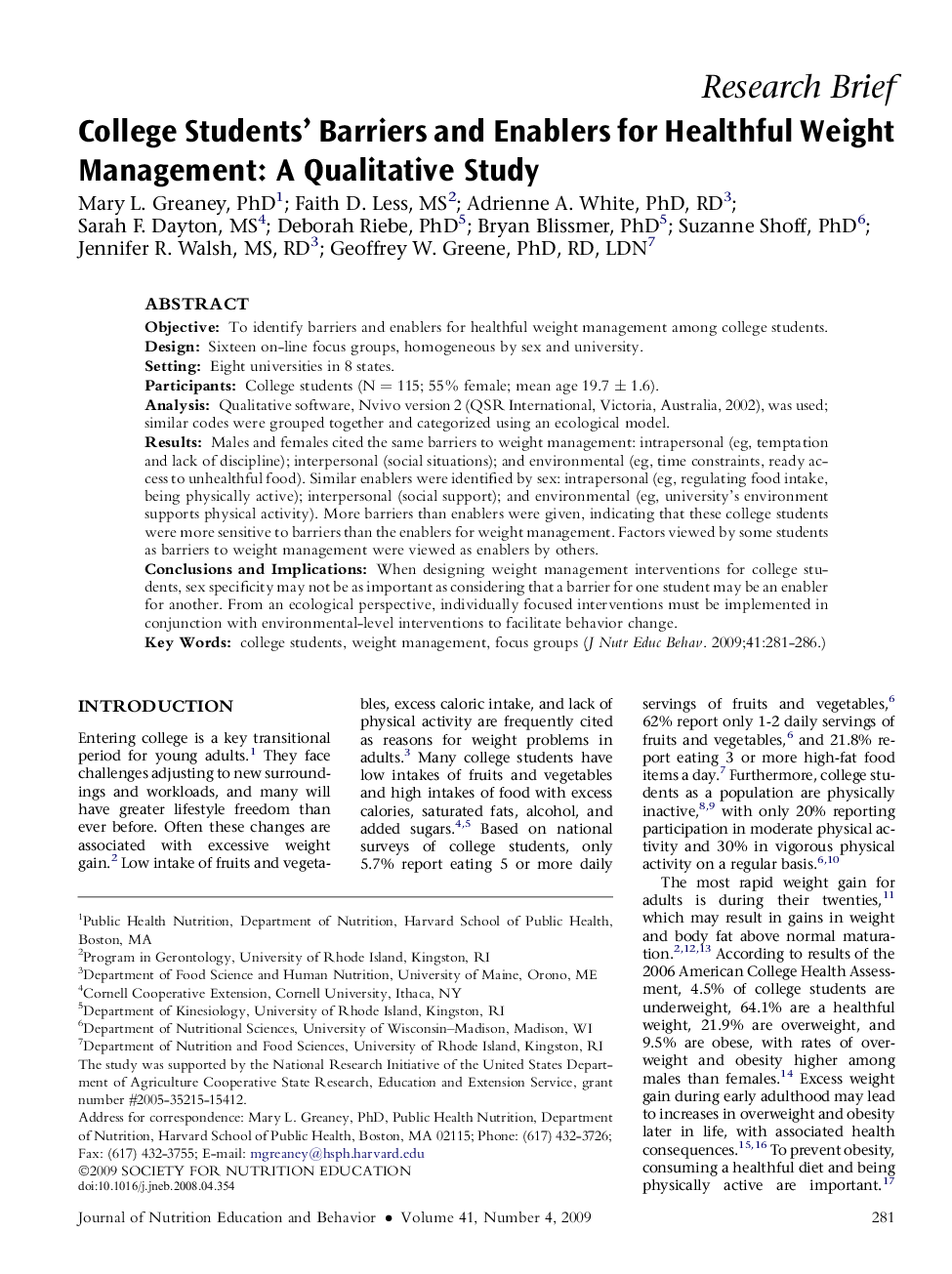| Article ID | Journal | Published Year | Pages | File Type |
|---|---|---|---|---|
| 362470 | Journal of Nutrition Education and Behavior | 2009 | 6 Pages |
ObjectiveTo identify barriers and enablers for healthful weight management among college students.DesignSixteen on-line focus groups, homogeneous by sex and university.SettingEight universities in 8 states.ParticipantsCollege students (N = 115; 55% female; mean age 19.7 ± 1.6).AnalysisQualitative software, Nvivo version 2 (QSR International, Victoria, Australia, 2002), was used; similar codes were grouped together and categorized using an ecological model.ResultsMales and females cited the same barriers to weight management: intrapersonal (eg, temptation and lack of discipline); interpersonal (social situations); and environmental (eg, time constraints, ready access to unhealthful food). Similar enablers were identified by sex: intrapersonal (eg, regulating food intake, being physically active); interpersonal (social support); and environmental (eg, university's environment supports physical activity). More barriers than enablers were given, indicating that these college students were more sensitive to barriers than the enablers for weight management. Factors viewed by some students as barriers to weight management were viewed as enablers by others.Conclusions and ImplicationsWhen designing weight management interventions for college students, sex specificity may not be as important as considering that a barrier for one student may be an enabler for another. From an ecological perspective, individually focused interventions must be implemented in conjunction with environmental-level interventions to facilitate behavior change.
